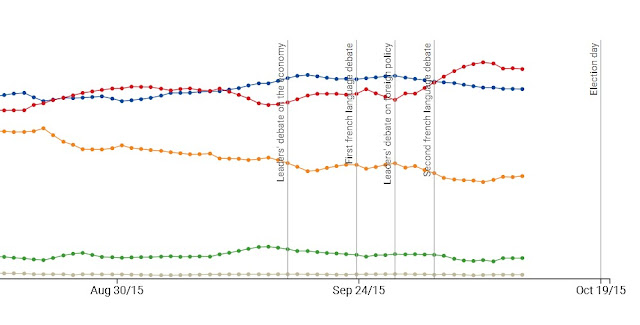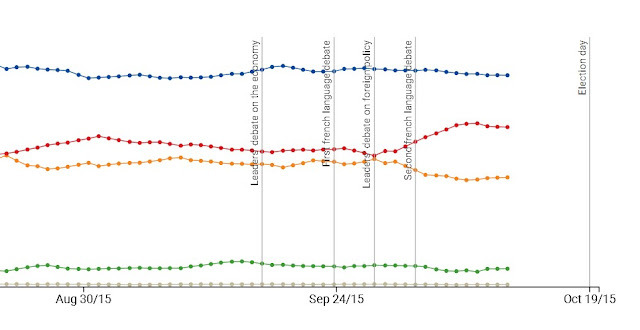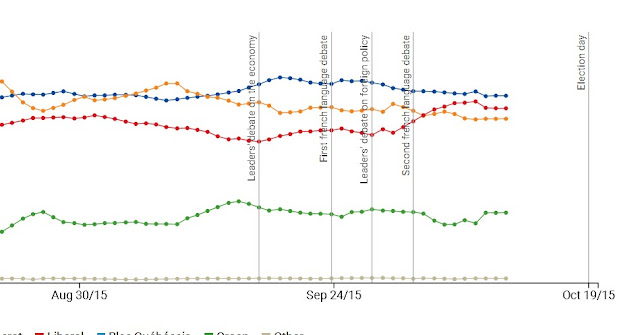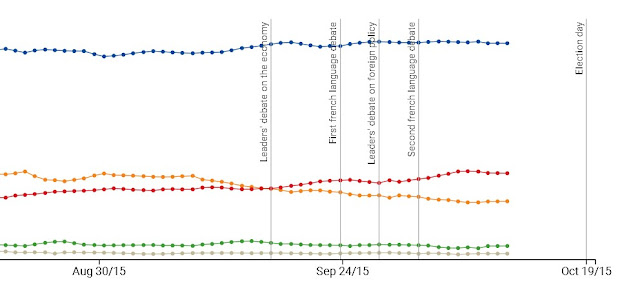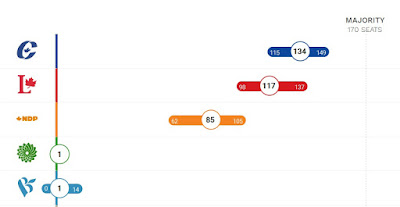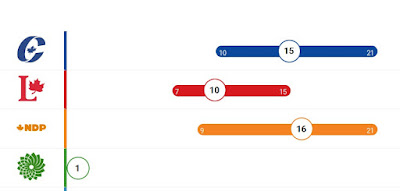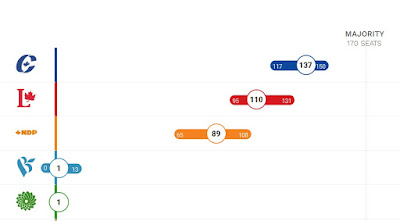Just a note for future elections: Debates count. A lot! Far more than most people realize. And the most recent poll by Signal / Toronto Star shows that even debates designed to avoid having millions of Canadians watch them, as our recent series were, count. Here’s a snapshot of voting
Continue readingTag: The Signal
CuriosityCat: Election 2015: The Dramatic Tale of the Debates
And the needle even moved in Tory Fortress Alberta – Justin moved ahead of Mulcair with the first debate, and kept increasing the gap:
CuriosityCat: The Signal for Oct 3: Non-Tory seats 202, Tory seats 134 Result? New government
CuriosityCat: The Signal for Oct 3: Non-Tory seats 202, Tory seats 134 Result? New government
If you have not bookmarked The Signal for your daily fix of the poll of polls, then do so immediately, and tell your friends to do so as well. As of today, October 3, a change of government on October 19 is even more certain than yesterday, because the LPC
Continue readingCuriosityCat: What will happen on election day? The Signal points the way: a change of government
To gain a more precise picture of the voting landscape across the country, the Star has teamed with Vox Pop Labs, an independent research organization, to utilize their election forecasting tool, named The Signal.
Faith in pollsters’ findings has been tested in recent years, both home and abroad. After failed efforts to predict the Liberals win in the B.C. election of 2013, the Star asked “Why do pollsters keep getting it wrong?” Across the pond, British outlets pondered the same question only this year, when forecasters’ projections for the general election woefully undervalued support for David Cameron’s Conservative Party.
The important thing to note is this: The total of Liberal and NDP seats is 199, a huge margin over the projected seats of 137 for Harper’s ‘new’ Conservatives.
CuriosityCat: What will happen on election day? The Signal points the way: a change of government
Say welcome to a new poll of polls aggregator service named The Signal. It is one pollster that you will be checking on a daily basis in the 17 days left before our election on October 19. The Signal is a creation of Vox Pop Labs. This is how the
Continue reading

